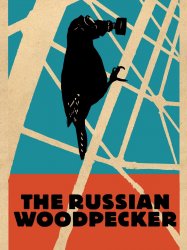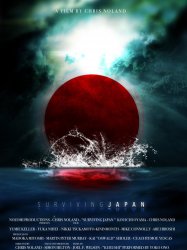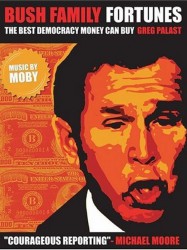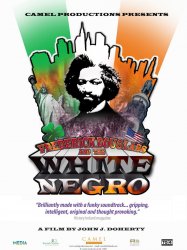Skoplje '63 est un film de genre Documentaire réalisé par Veljko Bulajić
Skoplje '63 (1964)

Si vous aimez ce film, faites-le savoir !
Skoplje '63 is a 1964 Yugoslavian documentary film directed by Veljko Bulajić about the 1963 Skopje earthquake (Skoplje, per film title, is the Serbian and Croatian spelling of Skopje). It was screened at the 1964 Cannes Film Festival, but wasn't entered into the main competition. The film was also selected as the Yugoslav entry for the Best Foreign Language Film at the 37th Academy Awards, but was not accepted as a nominee.
The filming started three days after the earthquake and lasted for four months. After that, Bulajić spent 12 months editing the footage at Jadran Film studios.
^ "Festival de Cannes: Skoplje '63". festival-cannes.com. Retrieved 2009-03-01.
^ Margaret Herrick Library, Academy of Motion Picture Arts and Sciences
^ "Vrdoljak izigrava patnika a štitio ga je admiral Mamula". Večernji list (in Croatian). 15 May 2010. Retrieved 2010-05-21.
Commentaires
Postez un commentaire :
Suggestions de films similaires à Skoplje '63
Il y a 13 films avec le même réalisateur, 8860 ayant les mêmes genres cinématographiques, 3369 films qui ont les mêmes thèmes (dont 98 films qui ont les mêmes 2 thèmes que Skoplje '63), pour avoir au final 70 suggestions de films similaires.Si vous avez aimé Skoplje '63, vous aimerez sûrement les films similaires suivants :
 , 58minutes
, 58minutesOrigine Pakistan
Genres Documentaire
Thèmes Les attentats du 11 septembre 2001, Religion, Le terrorisme, Transport, Aviation, Documentaire sur le droit, Documentaire sur la guerre, Documentaire historique, Documentaire sur la politique, Documentaire sur la religion, Documentaire sur les technologies, Documentaire sur le terrorisme, Politique, Religion musulmane, Film catastrophe, Film de catastrophe aérienne, Détournement d'avion
The film follows with the journey of the Pakistani rock star Salman Ahmad, a US citizen of Pakistani origin, asks fellow Muslims what it’s like to be Muslim in post-9/11 America.

The Soviet Story (2008)
, 1h25Réalisé par Edvīns Šnore
Origine Lettonie
Genres Guerre, Documentaire, Historique
Thèmes Documentaire sur la guerre, Documentaire historique, Documentaire sur la politique, Politique, Documentaire sur la Seconde Guerre mondiale, Film catastrophe
Note80%






Columbia: The Tragic Loss (2004)
, 1hGenres Documentaire
Thèmes Religion, Transport, Aviation, Documentaire historique, Documentaire sur les technologies, Religion juive, Film catastrophe, Film de catastrophe aérienne

Le Pic-vert russe (2015)
, 1h20Origine Etats-Unis
Genres Documentaire, Historique
Thèmes L'environnement, Documentaire sur l'environnement, Documentaire historique, Documentaire sur le nucléaire, Documentaire sur les technologies, Film catastrophe
Note66%





Le jeune artiste ukrainien Fedor Alexandrovitch et le réalisateur Chad Gracia enquêtent sur la catastrophe de Tchernobyl : et si ce n'était pas un accident ?

3.11: Surviving Japan (2013)
, 1h30Réalisé par Simon Hilton
Genres Documentaire
Thèmes L'environnement, La mer, Transport, Documentaire sur l'environnement, Documentaire historique, Documentaire sur le nucléaire, Documentaire sur les technologies, Film catastrophe, Catastrophe sismologique
Note82%





The film spans from March 11, 2001 to September 19, 2011, starting with Noland's own experience in the Tōhoku Earthquake and tsunami, Fukushima Daiichi nuclear disaster followed by volunteer activities in Ofunato

My Atomic Aunt (2013)
Genres Documentaire
Thèmes L'environnement, La mer, Transport, Documentaire sur l'environnement, Documentaire historique, Documentaire sur le nucléaire, Documentaire sur les technologies, Film catastrophe, Catastrophe sismologique
Note67%





Surviving the Tsunami brings together social, environmental, and personal perspectives of the national catastrophe of the Fukushima nuclear meltdown. In the documentary, Kyoko Miyake travels back to her hometown in Namie, Fukushima, to revisit her old life and assess the trauma still lingering from the disaster. She revisits Namie, her mother's hometown and meets the people who depended on the success of the nuclear plant for their livelihood. The film also follows Bunsei Watanabe and Kyoko Miyake's Aunt Kuniko, two people who hope for the rejuvenation of Namie, despite the disaster that has occurred. Despite having lost family, friends, and jobs due to the meltdown and subsequent fear of the contamination zone, these two individuals are determined to rebuild their towns and neighborhoods and bring back the sense of community they once had. The film follows the residents of Namie, with emphasis on the experiences of Aunt Kuniko, as they come to terms with the reality of living in or near the "radiation zone" left in the wake the plant's nuclear meltdown. Surviving the Tsunami offers a different perspective on Japanese culture, national identity, human adaption, and global nuclear energy and proliferation.

Native New Yorker (2005)
, 13minutesOrigine Etats-Unis
Genres Documentaire
Thèmes Les attentats du 11 septembre 2001, L'environnement, Religion, Le terrorisme, Transport, Aviation, Documentaire sur le droit, Documentaire sur la guerre, Documentaire historique, Documentaire sur la politique, Documentaire sur la religion, Documentaire sur les technologies, Documentaire sur le terrorisme, Documentaire sur les villes, Politique, Religion musulmane, Film catastrophe, Film de catastrophe aérienne, Détournement d'avion
Note80%





 , 1h2
, 1h2Réalisé par Gregory Allyn Palast
Origine Etats-Unis
Genres Biographie, Documentaire
Thèmes Les attentats du 11 septembre 2001, Religion, Le terrorisme, Transport, Aviation, Documentaire sur le droit, Documentaire sur la guerre, Documentaire historique, Documentaire sur une personnalité, Documentaire sur la politique, Documentaire sur la religion, Documentaire sur les technologies, Documentaire sur le terrorisme, Politique, Religion musulmane, Film catastrophe, Film de catastrophe aérienne, Détournement d'avion
Note67%





The film starts with a brief pre-title clip from presenter Greg Palast’s aborted interview with Florida Director of Elections Clayton Roberts, who walks out.
 , 52minutes
, 52minutesGenres Documentaire
Thèmes Esclavagisme, Le racisme, Documentaire sur la discrimination, Documentaire sur le droit, Documentaire sur la guerre, Documentaire historique, Documentaire sur une personnalité, Politique, Film catastrophe
Frederick Douglass and the White Negro is a documentary telling the story of ex-slave, abolitionist, writer and politician Frederick Douglass and his escape to Ireland from America in the 1840s. The film follows Douglass' life from slavery as a young man through to his time in Ireland where he befriended Daniel O'Connell, toured the country spreading the message of abolition and was treated as a human being for the first time by white people. His arrival in Ireland coincided with the Great Famine and he witnessed white people in what he considered to be a worse state than his fellow African Americans back in the US. The film follows Douglass back to America where he buys his freedom with funds raised in Ireland and Britain. Fellow passengers on his return journey include the Irish escaping the famine who arrive in their millions and would go on to play a major role in the New York Draft Riot of 1863 which Douglass could only despair over. The film examines (with contributions from the author of How The Irish Became White Noel Ignatiev amongst others) the turbulent relationship between African Americans and Irish Americans during the American Civil War, what drew them together and what drove them apart and how this would shape the America of the twentieth century and beyond.
 Connexion
Connexion
